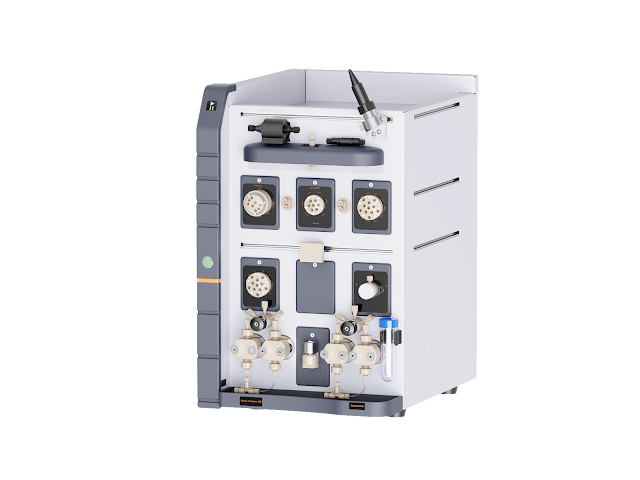Fast Protein Liquid Chromatography: Streamlining Protein Purification
Fast Protein Liquid Chromatography (FPLC) has revolutionized the field of protein purification. With the advancements in Chromatography techniques, FPLC offers an efficient and rapid method for separating and purifying proteins from complex mixtures.
Chromatography
is a technique used to separate and analyse complex mixtures. In the realm of Liquid Chromatography, FPLC stands out
due to its speed, precision, and versatility. Unlike traditional methods, FPLC
utilizes a high-pressure liquid chromatography system, often referred to as an AKTA system. This lab equipment
allows for faster and more efficient separations, making it an indispensable
tool in modern molecular biology and biochemistry laboratories.
One of the primary applications of FPLC is in protein purification. Proteins
are fundamental molecules in biological systems, and their study often requires
them to be isolated from cellular extracts or other biological samples. FPLC
chromatography simplifies this process by enabling the separation of proteins
based on their size, charge, and affinity. This results in highly pure protein
samples that are essential for various downstream applications, such as
structural analysis, enzymatic studies, and therapeutic protein production.
Another significant application of FPLC is in oligonucleotide synthesis.
Oligonucleotides, short DNA or RNA molecules, are crucial tools in molecular
biology and biotechnology. The synthesis of these molecules requires high
purity and precision. FPLC chromatography, when integrated with a DNA Synthesizer,
can efficiently purify synthesized oligonucleotides, ensuring their quality and
reliability for research and diagnostic applications.
The integration of FPLC into laboratory workflows has
transformed the way scientists approach protein purification and
oligonucleotide synthesis. With its speed and efficiency, FPLC has become an
essential lab equipment for researchers
and technicians working in molecular biology, biochemistry, and biotechnology.
In conclusion, Fast Protein Liquid Chromatography (FPLC) has
emerged as a powerful and versatile tool in the field of Chromatography. Its applications in protein purification and oligonucleotide synthesis have
streamlined laboratory processes, offering faster, more efficient, and reliable
results. As technology continues to advance, FPLC is expected to play an
increasingly pivotal role in enhancing the capabilities and efficiency of
modern laboratories.
.jpg)

Comments
Post a Comment